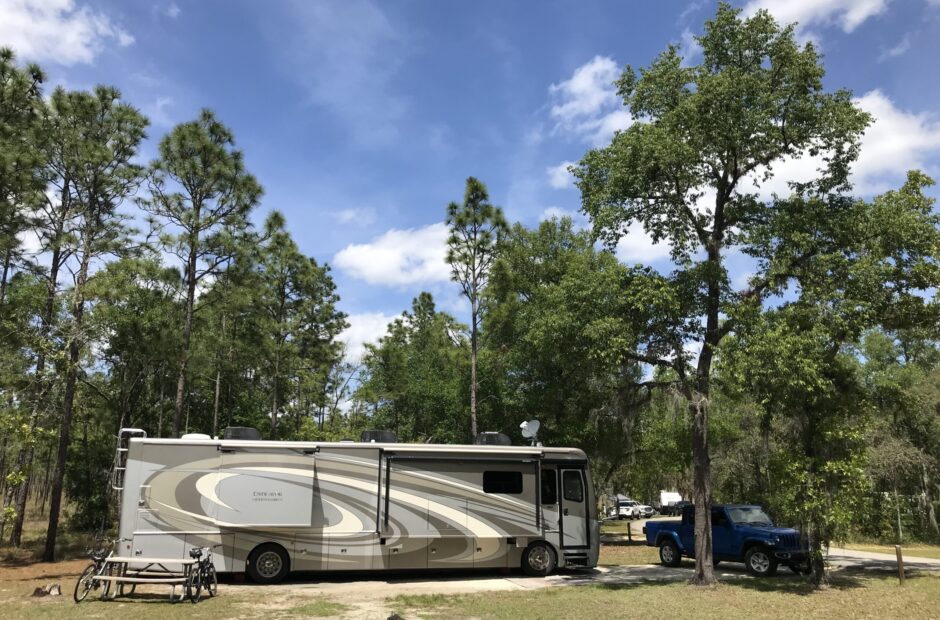Loranger Pines RV Park, West Branch, Michigan
For by grace you have been saved, through faith – and this not from yourselves, it is the gift of God – not by works, so that no one can boast. Ephesians 2:8-9
We discussed walking the Mackinaw Bridge today. Remember, they open it up for walking for five hours for the past 61 years? But it would’ve meant a two-hour drive and not just that but there was no information on where to park. Plus, after looking at some pictures and video from previous walks, the 30-40,000 people are shuffled through like cattle, walking very slowly, and only those on the outside would have any hope of views – or pictures. Did I come up with enough excuses to avoid this possibly once-in-a-lifetime experience? In the end, we opted not to go.
Instead, we walked around the historic downtown West Branch, and while the downtown wasn’t much to write home about (but there’s always something!) . . . .
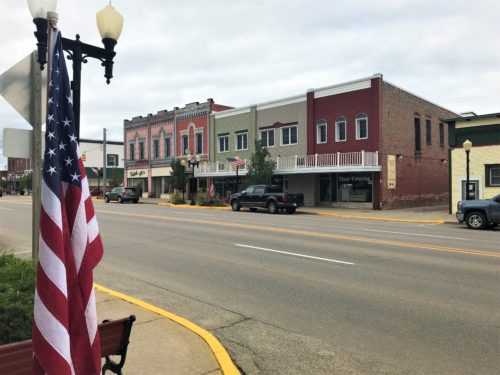
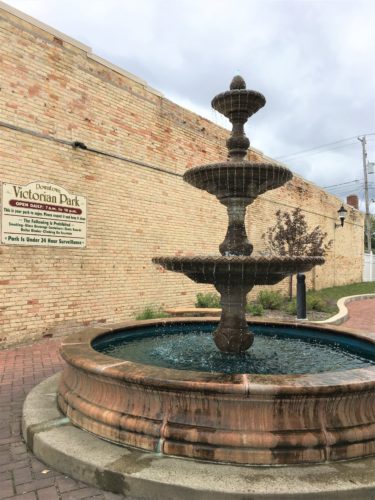
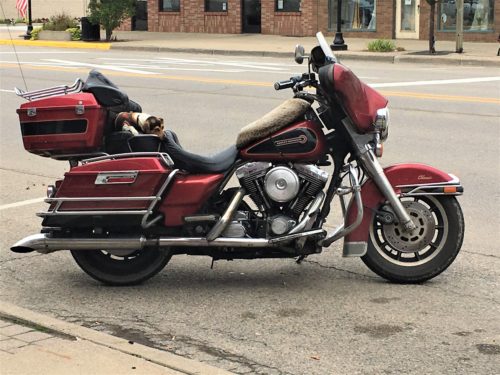
Take a closer look . . .
That’s not just a Harley, it’s a Harley with a mascot!
The big burly Harley-looking man was in the restaurant sitting by the window, keeping an eye on his little buddy, who I swear to you never moved!
At first we didn’t see him, then we thought he was stuffed, until I looked at his eyes.
I walked back, past the window so the guy couldn’t see me, to take the picture. Didn’t know if he’d appreciate it or not, and I wasn’t interested in watching a fight between him and Blaine – especially if the little guy joined in.
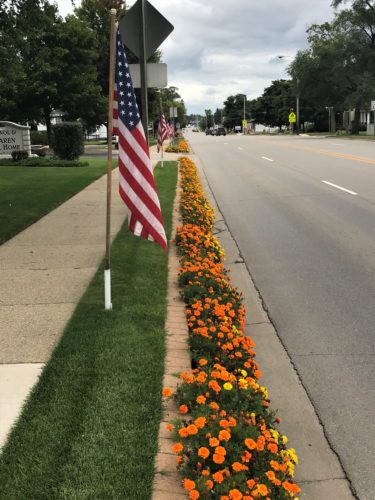
Many of the towns around here line their main street with flowers.
Very nice!

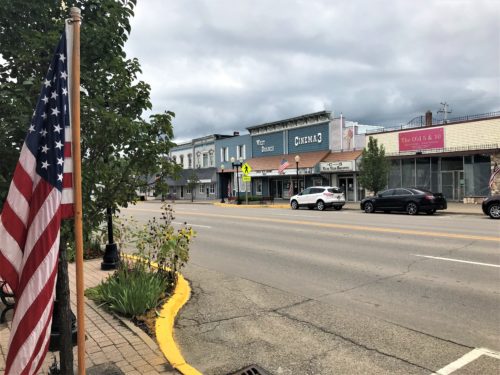
. . . . we accidentally discovered a lovely River Walk.
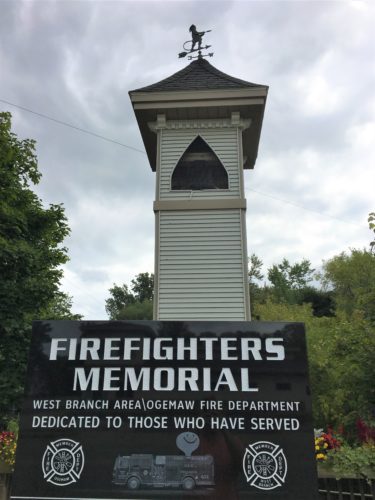
So, we checked out the memorial, then walked by. But on the way back, I noticed a large sign behind it. Looked like it might be an information board, so . . . .
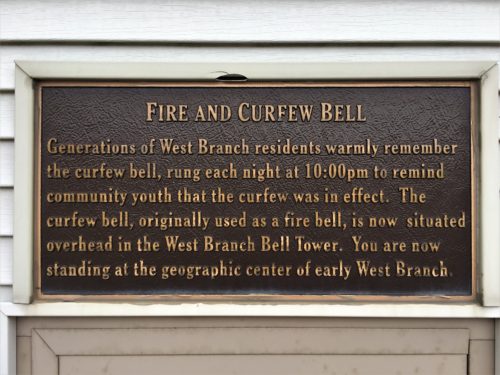
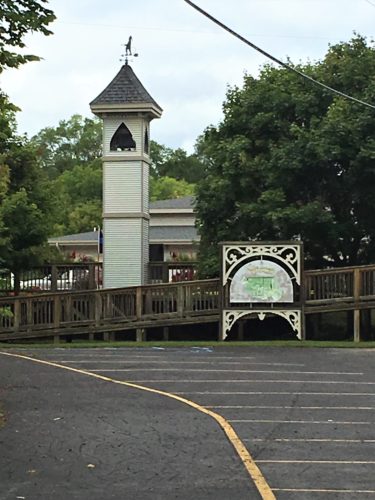
. . . it was a map and talked about the River Walk!
Which turned out to be a terrific discovery!
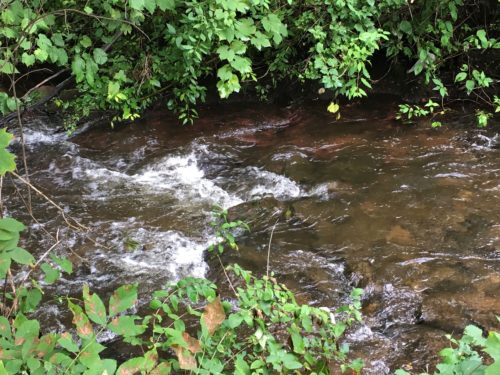
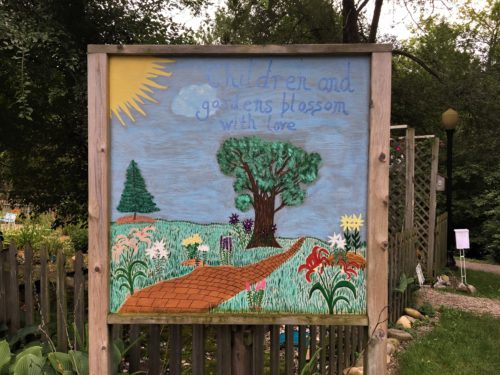
This was a nice little path alongside the River Walk, packed with surprises!


They had several of these kid-sized benches in different colors.
I tried to get Blaine to sit on one, but he was afraid.
I’m not sure of what. : )
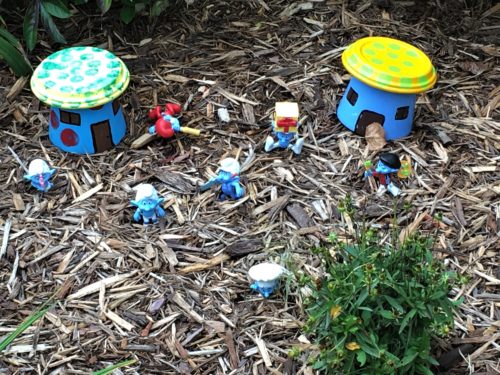
Call 911! Papa Smurf’s down!
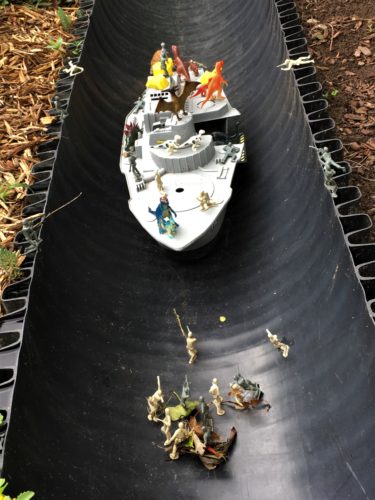
Not sure why the soldiers are in the ‘water’. They must be Seals.
But then again, I’m not sure why there’s dinosaurs on a ship either, unless they escaped the cargo hold transporting them from Jurassic Park.

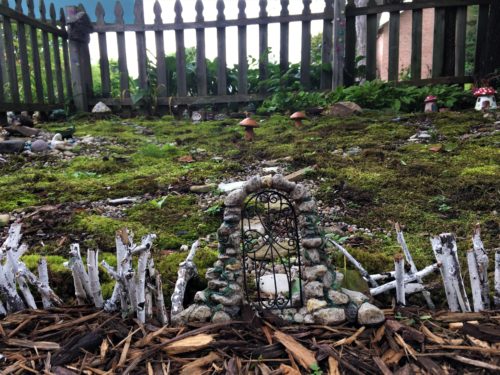
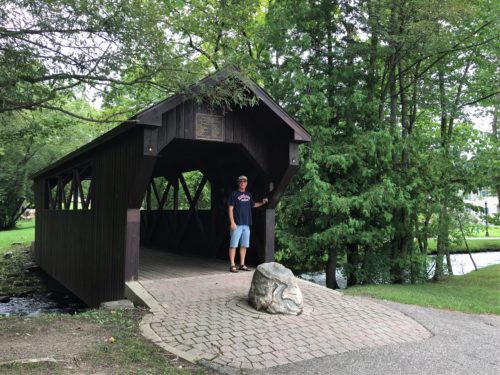
There were several various types of bridges in this park.
It was a lovely place -despite the overcast skies!
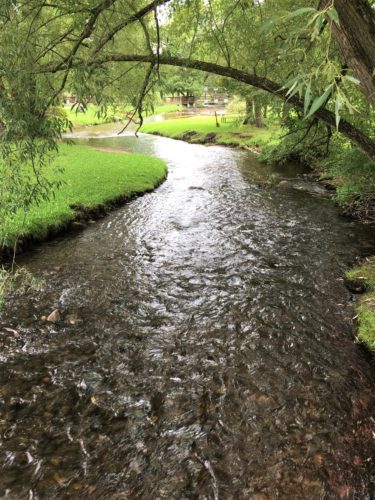
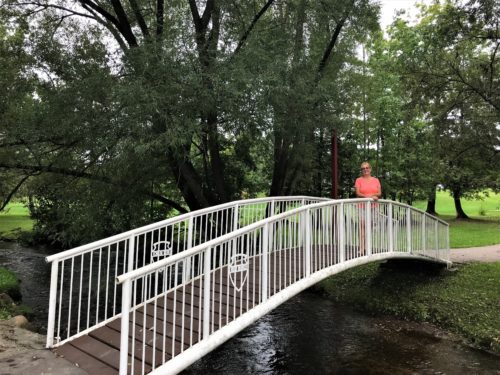
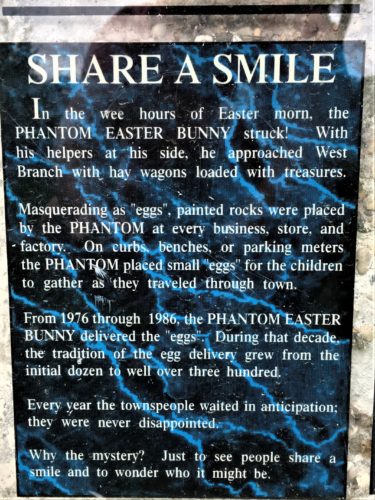
This was under a concrete pedestal, which I believe at one time, was topped with a painted egg-shaped stone.
The egg was missing.
Someone stole a gift from the Easter Bunny!
No more eggs for them, and probably coal from Santa too!
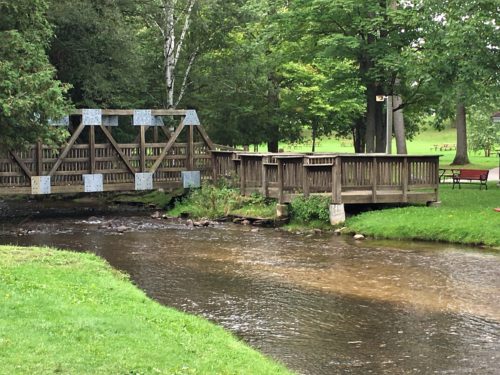
There was a very large playground to the left of this picture – all made from the same wood.
Too difficult to take a picture of though.
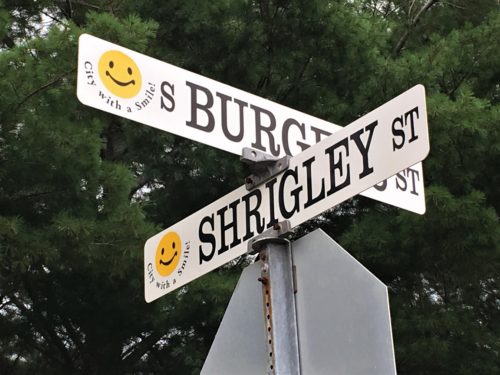
All their street signs have smiley faces on them!
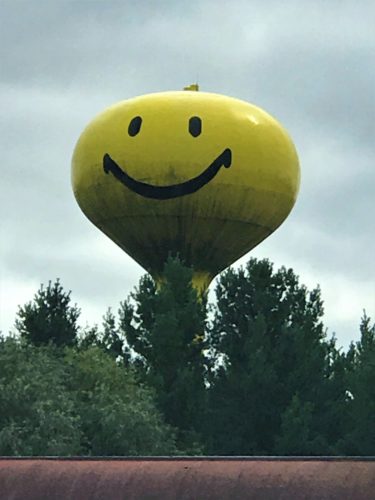
They even have a smiley face memorial to Pigpen.
Seriously, though, someone should hose this down. It just looks bad . . .
By the way, I didn’t forget that it’s Labor Day. It just that since neither of us work anymore, we kinda don’t need this holiday anymore. 😊 However, Blaine has been an IBEW union member for 35 years. It was a very rewarding career, and financially allows us to live the lifestyle we now enjoy.
But I did get to wondering about its origin. Seems its been around much longer than I would’ve thought! Read and learn. . . but retaining is another matter altogether . . .
Labor Day, the first Monday in September, is a creation of the labor movement and is dedicated to the social and economic achievements of American workers. It constitutes a yearly national tribute to the contributions workers have made to the strength, prosperity, and well-being of our country.
More than a century after the first Labor Day observance, there is still some doubt as to who first proposed the holiday for workers.
Some records show that Peter J. McGuire, general secretary of the Brotherhood of Carpenters and Joiners and a co-founder of the American Federation of Labor, was first in suggesting a day to honor those “who from rude nature have delved and carved all the grandeur we behold.”
But Peter McGuire’s place in Labor Day history has not gone unchallenged. Many believe that Matthew Maguire, a machinist, not Peter McGuire, founded the holiday. Recent research seems to support the contention that Matthew Maguire, later the secretary of Local 344 of the International Association of Machinists in Paterson, N.J., proposed the holiday in 1882 while serving as secretary of the Central Labor Union in New York. What is clear is that the Central Labor Union adopted a Labor Day proposal and appointed a committee to plan a demonstration and picnic.
The first Labor Day holiday was celebrated on Tuesday, September 5, 1882, in New York City, in accordance with the plans of the Central Labor Union. The Central Labor Union held its second Labor Day holiday just a year later, on September 5, 1883.
The first governmental recognition came through municipal ordinances passed in 1885 and 1886. From these, a movement developed to secure state legislation. The first state bill was introduced into the New York legislature, but the first to become law was passed by Oregon on February 21, 1887. During 1887 four more states — Colorado, Massachusetts, New Jersey, and New York — created the Labor Day holiday by legislative enactment. By the end of the decade Connecticut, Nebraska, and Pennsylvania had followed suit. By 1894, 23 more states had adopted the holiday, and on June 28, 1894, Congress passed an act making the first Monday in September of each year a legal holiday in the District of Columbia and the territories.
In 1894 the first Monday in September was selected as the holiday, as originally proposed, and the Central Labor Union urged similar organizations in other cities to follow the example of New York and celebrate a “workingmen’s holiday” on that date. The idea spread with the growth of labor organizations, and in 1895 Labor Day was celebrated in many industrial centers of the country. ~ taken from dol.gov
